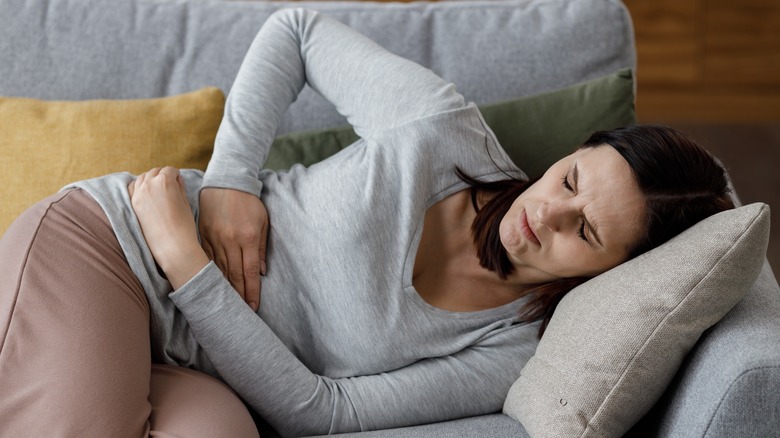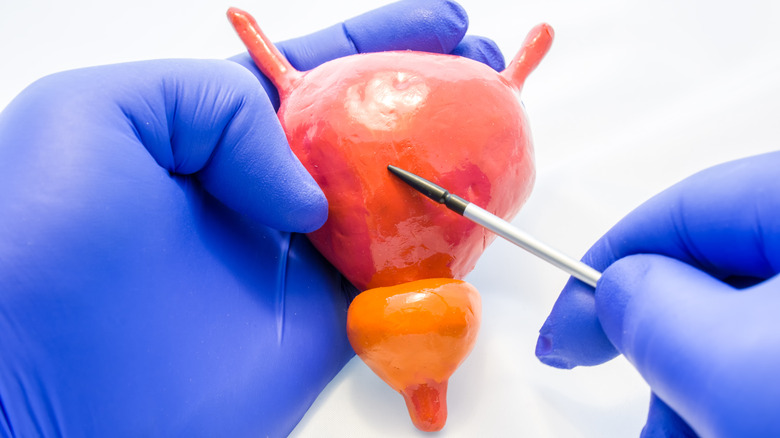How Constipation Affects Your Bladder
Constipation is a common health complaint, affecting up to 15% of the adult population in the U.S., reports the American Society of Colon and Rectal Surgeons. Its causes range from dietary factors to underlying conditions such as diabetes, lupus, or cancer. In some cases, constipation is due to a sedentary lifestyle, but it may also result from issues related to the pelvic floor structure and function. Certain medications, such as those prescribed for high blood pressure, pain, or mental disorders, can also cause constipation.
This digestive problem can affect bladder and bowel function. Sometimes, it may lead to hemorrhoids, anal fissures, rectal prolapse, and other serious complications. It's also possible to experience fecal impaction due to chronic constipation, explains Stanford Health Care. This condition can result in rectal tissue injury or necrosis, fecal incontinence, lower back pain, and heart palpitations, notes the U.S. National Library of Medicine.
Constipation may pose challenges for those with bladder disorders. A full colon can put pressure on the bladder, increasing the urgency to urinate (per University of California). On the positive side, there are steps you can take to prevent constipation and keep your digestive system healthy.
Constipation can cause or worsen bladder problems
The rectum and bladder are close to each other — and, therefore, constipation may worsen bladder problems, and vice versa. Bladder and bowel problems often occur together, according to clinical research published in the International Brazilian Journal of Urology. For example, some evidence suggests there's an association between constipation and bed-wetting, urinary tract infections (UTIs), bladder incontinence, and incomplete bladder emptying. Some studies also suggest that straining to have a bowel movement can affect the pelvic floor muscles, which may lead to pelvic organ prolapse. When that happens, your bladder, uterus, or rectum moves out of place, dropping in or out of the vagina, explains the Office on Women's Health.
Constipation also goes hand-in-hand with overactive bladder, a condition characterized by increased urinary frequency and urgency. Stool buildup in the bowels can compress the bladder and narrow the urethra, making it harder to hold in urine and resulting in more trips to the bathroom, notes Healthline.
The same goes for bladder incontinence, interstitial cystitis, urinary retention, and other related problems. When you're constipated, the pressure on your bladder and urethra increases, which can result in urinary tract dysfunction, explains Baylor College of Medicine. In some cases, constipation may cause the urine to flow back into the ureters and possibly the kidneys, warns the University of California, San Francisco.
Take these steps to prevent constipation
While it's not always possible to prevent constipation, you can try to reduce it. For starters, fill up on high-fiber foods like whole grains, legumes, seeds, avocados, and leafy greens, recommends the Cleveland Clinic. Nuts, carrots, trail mixes, and kale chips contain this nutrient, too. Just make sure you increase your fiber intake gradually and consume plenty of water to avoid bloating and stomach problems. After getting your doctor's approval, you can also add a little bit of psyllium husk to a full glass of water and drink the mixture (per Mount Sinai).
Note, though, that certain fruits and other fiber-rich foods can irritate the bladder. For example, some people experience bladder discomfort after eating apples, cranberries, prunes, peaches, rye bread, beans, or pineapple, says the Cleveland Clinic. If that's your case, reach for whole grains and low-acid fruits and veggies.
The way you sit on the toilet matters, too. Amber Langel, a physical therapist, recommends placing your feet on a footstool (via Southwest Health). You could use the Squatty Potty, a low stool that changes the rectal canal angle, making it easier to have bowel movements, explains Healthline. Also, try to limit the amount of time spent on the toilet to 10-15 minutes, suggests Langel. Lastly, the American Academy of Family Physicians suggests seeing your doctor if you have frequent constipation.



